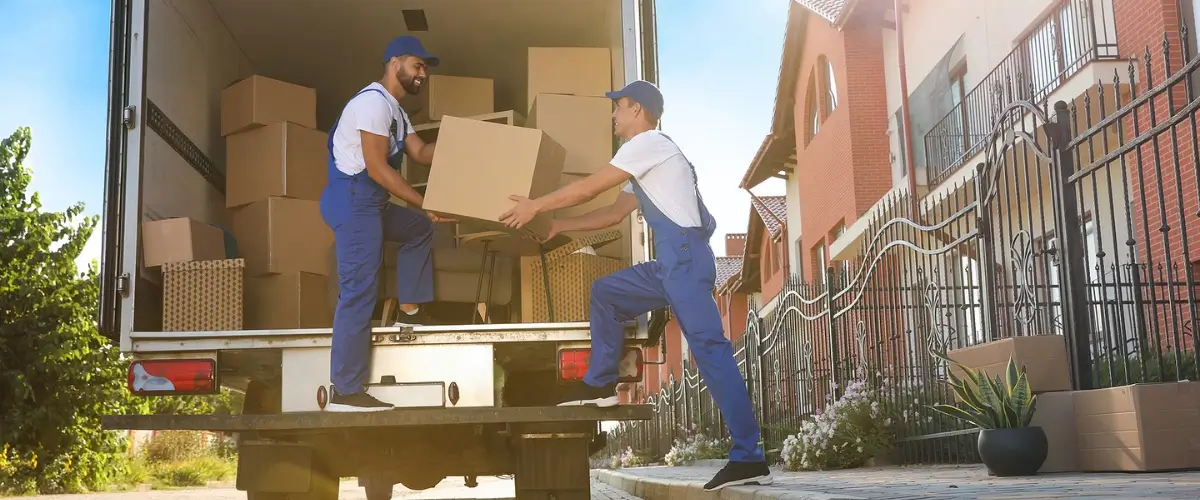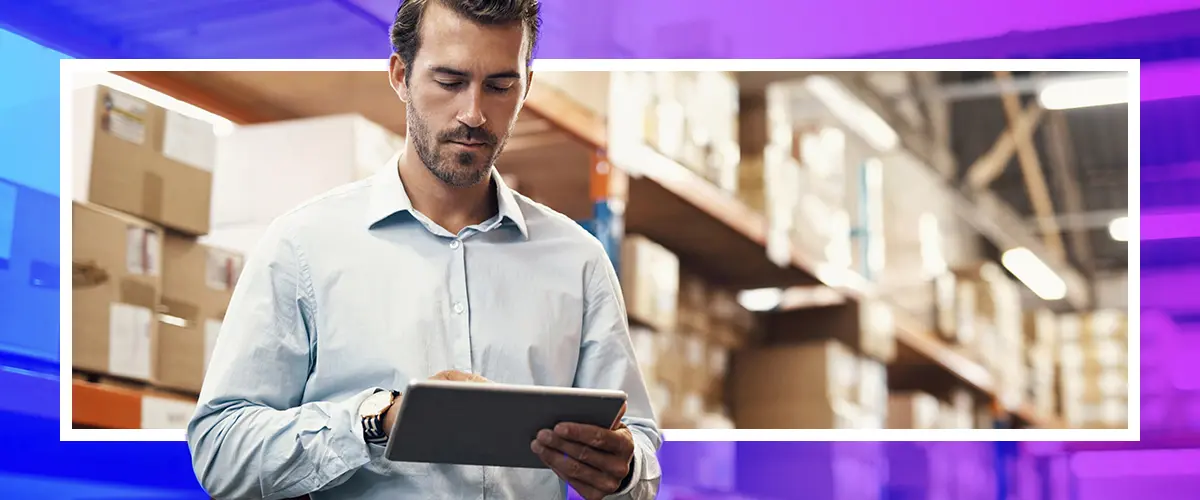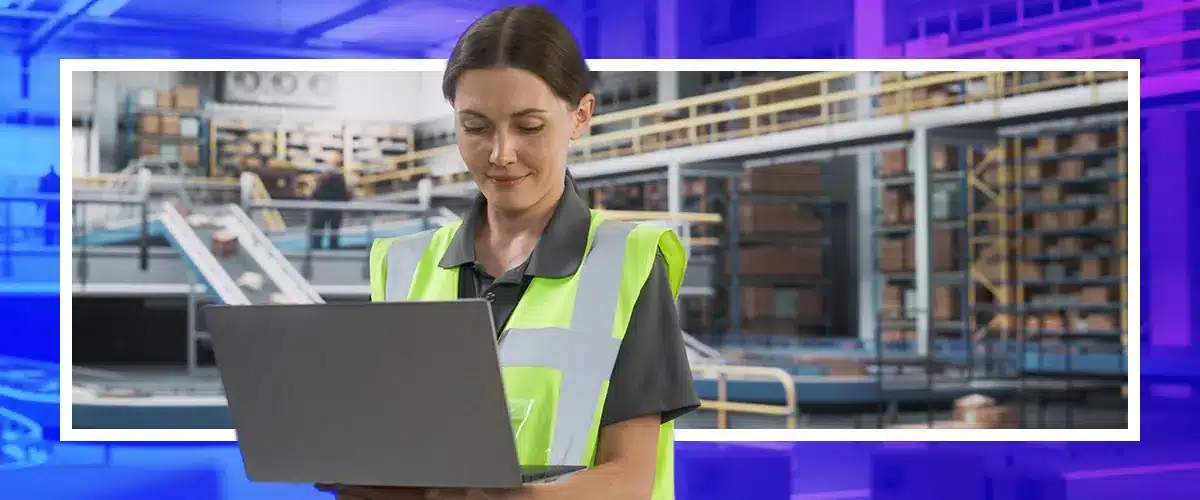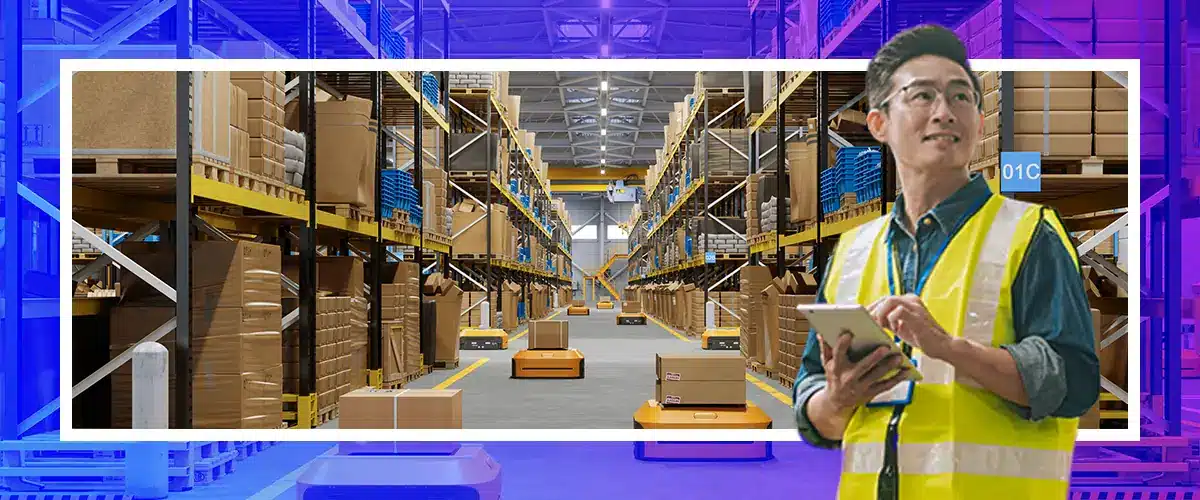If you’re running a business that ships items to consumers, your priority has likely been getting orders out of your warehouse and moving towards consumers as quickly and efficiently as possible. But focusing on speedy order processing could lead to you forgetting about the most critical step in accomplishing direct-to-consumer fulfillment: the final mile.
Whether shipping is something you handle yourself or a process you manage alongside a 3PL WMS, the shipping portion of your operation doesn’t technically end when you place your products in the hands of a mail service.
Your product may move from one post office (or FedEx office or UPS office, etc.) to another, then be driven by someone else to another post office closer to the final destination address. This process will continue over and over again until the product is delivered to the post office that is as close to the consumer’s location as possible . . . and even then, the process is not done.
So, what happens after that? Who is the last to holder of your items before your consumer? The answer is simple: a last-mile carrier.
Contents
What Is A Last-Mile Carrier?
As you can probably guess from the name, a last-mile carrier is the person or service who finishes out the last leg of a package journey. This carrier takes the items shipped from the nearest shipping hub to its final destination . . . and it does so as efficiently and thriftily as possible.
Put another way, last-mile carriers are the people or services that transport packages the final distance. Some popular examples are UPS, USPS, DHL, FedEx, and other regional carriers.
When the term last-mile carrier or last-mile delivery is used, it’s usually referring to how a package gets from a fulfillment center to the buyer who bought it. Most last-mile carriers (see aforementioned list) will have multiple vans, cars, trucks, etc. to get the product to the buyer as quickly as possible.
Fast shipping and overnight shipping delivery strategy unknowns are unveiled in this post. Learn more about overnight delivery processes to boost your business!
Last-mile carriers are very important to businesses! Knowing who will be your last-mile carrier can go a long way towards keeping your business successful, rather than having to relegate it to the dusty annals of time.
Last-mile carriers are the ones who will ultimately determine your customer’s satisfaction with whatever they’ve bought from you, No customer is going to want to speak well of your company if their package took forever to arrive, so make sure to keep up-to-date on which shipping service you’re working with, their policies, and how their last-mile carrying services work will go a long way towards helping your business succeed.
Unlock a personalized tour of Logiwa IO
How Do Last-Mile Carriers Operate?
Last-mile carriers operate in roughly the same way, no matter which company they are from. They will have a fleet of vehicles (cars, vans, trucks, etc.) that they will load up with packages from a central packing center, and then those vehicles will start heading off to deliver the mail.
For example, you’ve likely encountered the USPS white mail trucks. Those white mail trucks would be last-mile carriers. They are the people or services that are delivering your packages to their final destination.
Why Are Last-Mile Carriers Important?
Despite how long last-mile carriers might take to finish delivering a package, last-mile carriers are important because, without them, it’d be impossible for packages to end up where they need to get. Sure, there would be the interim postal services that get the packages from processing facility to processing facility, but how would they then get to the final destination?
Last-mile carriers save the recipients of packages time, energy, and money. Without last-mile carriers, people who are waiting for packages would have no choice but to go to a processing facility and try to retrieve their package that way.
It would be absolute chaos as the processing facility tries to process incoming and outgoing packages while also attempting to deal with customers and locate packages for pickup.
Getting a package and shipping out a package would end up taking 2-3 times as long as it currently does, just from the sheer inefficiency of the system.
This is why last-mile carriers are important.
How Do I Choose A Last-Mile Carrier?
The best way to choose a last-mile carrier is to figure out your needs and your budget before you start shipping a bunch of products. You will have to weigh their success rating, their customer satisfaction rating, their delivery speed, how they deal with delivery exceptions, and all other elements of their company to decide if they’ll work for you.
You can also check this against your order fulfillment software – if you have one – to see what they might recommend. At the end of the day, you’re going to want to go with the company that will make customers most happy.
The Future
Because of how vital shipping and delivery are to the world, this isn’t an industry that will be going away any time soon. It’s continuing to grow and develop, and each day, new advancements are being made.
For example, some companies are implementing the use of drone delivery logistics. They are trying to figure out how to use drones to their advantage and to use the drones to cut down on shipping and delivery costs for last-mile carriers.
Whether this element will take off going forward is unclear, but all the same, it’s helping some companies to cut costs without losing efficiency.
Once there is a perfect system in place for getting packages to customers quickly, efficiently, and inexpensively, the entire idea of last-mile carriers will change and evolve.
FAQs
What is a last-mile carrier?
A last-mile carrier is an individual or service that is in charge of finishing out the final leg of a shipment’s journey. They are the final transportation service that will get the package from a processing facility (such as a USPS hub) to the final destination.
This can take anywhere from 2 hours to 10 business days, but it is still the final leg of the shipping journey.
What does it mean to be accepted by a last-mile carrier?
As may be obvious from what it is called, being accepted by the last-mile carrier is when the final service or individual who will be delivering your package (to the customer, whether that’s you or someone else) has picked up the item.
It’s one of the last tracking notifications that will be given out to inform the buyer/recipient that their package is on the way.
How long does last-mile delivery take?
Unfortunately, last-mile delivery isn’t an exact science. It depends on the carrier, and it depends on the distance of the last-mile delivery. If the “closest” processing center is still miles away from the destination location, it can still take from 5-10 business days to make it to the customer.
Because this is still a very long amount of time, businesses are trying to come up with ways to service customers faster and more efficiently without having to lose a bunch of money. Companies such as Amazon have managed to figure out same-day delivery – which must be costing them a fortune – and although most companies don’t seem to be gunning for that much speed, they are trying to lessen the 5-10 business day delivery window.
Some businesses can even manage to do last-mile delivery within 2 hours of placing an order! Just be willing to pay money for that to work.
Is last-mile delivery profitable?
Yes and no. If you were to ask any business if last-mile delivery is profitable, you would likely be laughed out of the room. When it comes to finances, last-mile delivery is one of the most expensive parts of the whole business shipping process. Trying to get the products over that last leg of the journey can cost upwards of $10 per order, which can eat into potential profit margins.
Because of this, many brands and companies have sought out third-party logistics (3PLs) for their technical abilities and the way they’ve figured out how to reduce time and cut costs by focusing more on creating an infrastructure that will allow for more efficient last-mile delivery aspects.
Ship more with a fully integrated WMS that connects with 200+ ecommerce
3PL
Cloud 3PL software for high-volume fulfillment excellence






